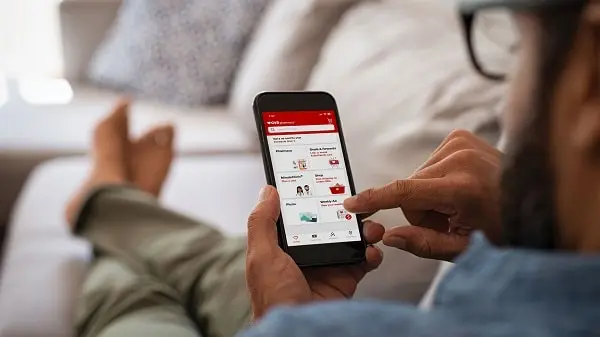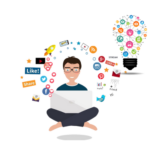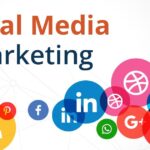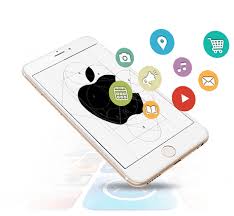There has been a clear change in how Americans take their medicines in the last few years. It’s becoming more common for people to use prescription apps on their phones. This is because digital options are easier to use, more efficient, and more accessible. This piece talks about why medication apps are becoming more popular and what users can get out of them.
How Do Apps That Deliver Medicines Work?
First, users either take a picture of their medication or type in the information into the app. Some apps also let people read barcodes or pick from old prescriptions to get refills. The app then sends the order to a pharmacy that works with it.
The pharmacy makes the medicine, and based on the app, you can either have it sent to your home or make it ready to be picked up. You can see where your medicine is and when it will come with many apps that let you track it in real time.
Some extra benefits include automatic reminders to take your medicine and the ability to chat or video call with pharmacists or healthcare providers. Overall, drug delivery apps make it easier and faster to keep track of your prescriptions.
How Useful Medication Apps ARE – (10+ Main Factors)
One of the main reasons Americans choose medicine delivery apps in USA is that they are easy to use. These apps make it easier to keep track of medications and offer a number of key benefits:
1.Easy to Fill Prescriptions
- When people use a medication app, they can quickly ask for refills without having to call or go to the store.
- This function makes keeping track of medication supplies easier and saves time.
2. Delivery to Your Home
- There are a lot of apps for medications that let people get their medicines delivered right to their door.
- This is especially helpful for people who have trouble traveling or who live in remote places.
3. 24/7 Access:
- Prescription services can be accessed 24 hours a day, seven days a week through medication apps.
- Users can control their medicines whenever they want, which makes it easier for people with busy lives to do so.
4. Better Management of Medications
- Medication apps are made to help people remember to take their medicines as prescribed and keep track of their doses.
- This better management has a number of advantages, including:
Automated Reminders:
- Apps can send notifications when it’s time to take medicine, which can help people stick to their schedules.
- This makes it less likely that doses will be missed and improves health in general.
5. Medication Record Keeping
- People can keep an eye on their medication records to see when they last took their prescriptions and when they need to get more.
- This tracking function makes it easier to stick to a regular schedule for taking medications.
6. Warnings for Interactions
- Some third party apps tell users about possible drug combinations so they are aware of any problems that might happen when they take more than one drug.
- This function helps keep bad effects from happening and makes sure that medications are used safely.
7. Accessibility and Welcoming Everyone
- A wider range of people can better handle their health needs thanks to medication apps.
- People are using these digital tools more because they are accessible and include everyone:
Support for Many Languages:
- Many apps have language options for people who don’t know English, which makes it easier for people from all walks of life to use these services effectively.
Accommodations for Disabilities:
- Many apps are made with features that make them easier for people with disabilities to use.
- This includes voice commands, choices for large text, and simple navigation so that everyone can take care of their own medications.
8. Delivery in Remote Places
- Medication apps let people who live in rural or underserved areas get prescription services without having to go to a drugstore a long way away.
- This makes it easier for people who might otherwise have trouble getting the medicines they need to get health care.
9. Savings and Cutting Costs
- Apps for medicines can also help save money, for both people and the healthcare system as a whole:
10. Sale Prices and Coupons
- Some apps let users find deals and coupons for medicines, which helps them save money on their prescriptions.
- This function is very helpful for people who don’t have insurance or who have big out-of-pocket costs.
11. Less Expensive Trips
- Medication apps make trips to the drugstore unnecessary by delivering medicines to people’s homes. This saves money on gas and time.
Streamlined Billing:
- Many apps make it easier to handle transactions and keep track of costs by integrating payment systems into the billing process.
Better Safety and Privacy
- When dealing with private health information, privacy and safety are very important.
- This is taken care of in a number of ways by medication apps:
12. Limits on Access
- People who use the service can decide who can see their information. Their prescription information can be shared with healthcare workers, or it can be kept secret.
13. Safe Transactions
- Apps that handle payments and prescriptions are encrypted and safe, which lowers the risk of fraud and illegal access.
How Technology is Used in Modern Health Care
The growing use of medicine apps is part of a larger trend to use technology in healthcare. These apps are part of a growing community of digital health tools that improve care for patients and make the process of healthcare easier:
Using Telemedicine Together
- An increasing number of drug apps are linked to telemedicine services, which let users talk to doctors from afar.
- This combination makes healthcare services easier to get to and more convenient.
Health Data Integration
- To get a full picture of a user’s health, apps often connect to other health data tools, like electronic health records (EHRs).
- This combination helps care be better coordinated and decisions to be made with more knowledge.
New Ideas for Solutions
- The creation of medicine apps is part of a larger trend in healthcare toward new ideas.
- As technology keeps getting better, we can expect even more advanced tools to come out that will make it easier to handle medications and improve health in general.
Conclusion
Medication apps are becoming more and more popular in the US because they are easy to use, make it easier to keep track of medications, are affordable, and protect privacy and security.
These digital tools are changing how Americans handle their prescriptions, making healthcare easier to get to and more streamlined. Medication apps are likely to become even more important in improving patient care and helping with health management as technology keeps getting better.
The move toward digital solutions is part of a larger trend to use technology in healthcare. This will help people take more control of their health and well-being.



